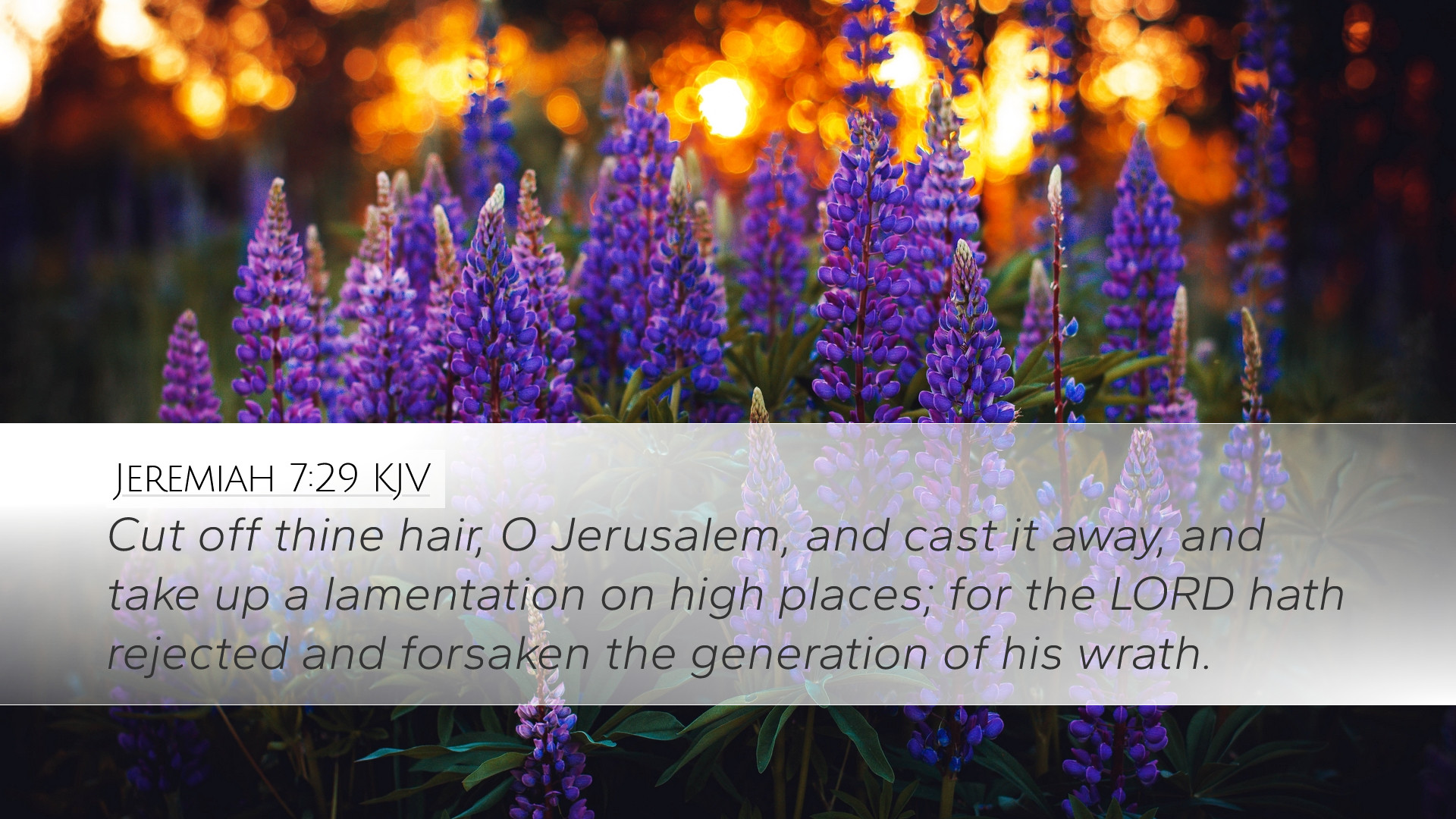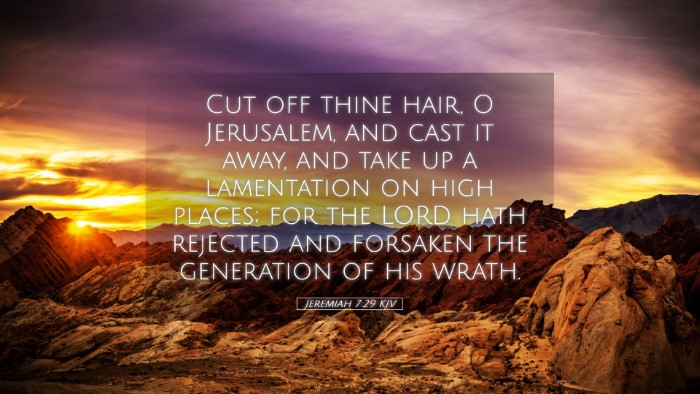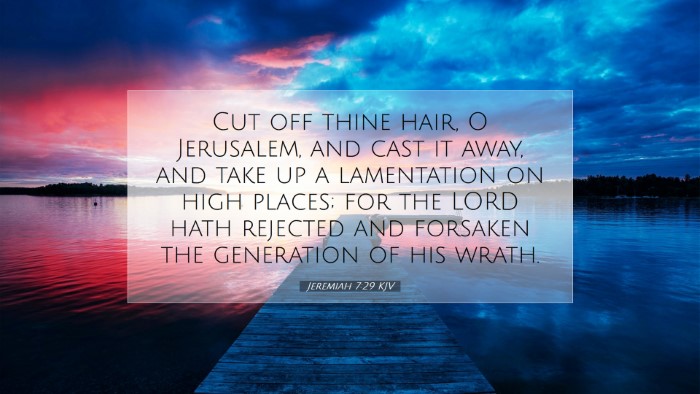Commentary on Jeremiah 7:29
Verse Text: "Cut off your hair, and cast it away, and take up a lamentation on high places; for the LORD hath rejected and forsaken the generation of his wrath." (Jeremiah 7:29)
Introduction
This verse serves as a poignant call to the people of Judah to acknowledge their spiritual state and the consequences of their persistent sinfulness. It encapsulates themes of judgment, mourning, and the need for genuine repentance that resonate throughout the prophetic literature.
Exegesis and Analysis
1. The Symbolism of Cutting Off Hair
Commentators agree on the profound symbolism inherent in the act of cutting off hair. In ancient Near Eastern cultures, including Israel, the cutting of hair was often associated with mourning and loss (Clarke). Matthew Henry notes that it signifies the removal of pride and the acknowledgment of disgrace. The act of casting it away symbolizes a rejection of the idolatrous practices that had led God’s people astray (Barnes).
2. Lamentation as a Response to Divine Rejection
The call to lament is significant. Adam Clarke explains that this lamentation is not merely an expression of grief but a collective recognition of God’s judgment. The high places mentioned refer to sites of idol worship, where the people turned away from true worship and toward pagan practices. This lamentation serves as a critical reminder of the gravity of their situation and God’s rejection of their corrupted worship (Henry).
3. The Generation of His Wrath
The phrase "generation of his wrath" indicates that God’s displeasure is not arbitrary but a response to repeated disobedience. According to Barnes, this generation represents the people who have consistently turned away from God’s covenant and embraced immorality. This idea underscores the concept of corporate responsibility in sin, where the actions of a few can bring judgment upon the many (Clarke).
Theological Implications
1. The Nature of Divine Judgment
This verse illustrates God's holiness and justice. The prohibition against idolatry reflects God's demand for exclusive loyalty. Henry emphasizes that God's wrath is not capricious but a necessary response to sin. Thus, the lamentation calls for self-examination and a return to faithfulness.
2. The Importance of Repentance
The instruction to cut off hair and lament can be viewed as a metaphor for repentance. For the modern believer, this calls into question how we respond to divine conviction. Clarke points out that genuine humility and acknowledgement of wrongdoing are critical for restoration with God. It is a call from God for His people to recognize their state and act accordingly.
Practical Applications for Today
1. Corporate Mourning over Sin
This passage challenges churches and communities to engage in collective mourning over sin, both personal and societal. Just as Judah was called to lament, modern congregations should regularly reflect on their fidelity to God and seek His mercy (Barnes).
2. The Call to Authentic Worship
In a culture often marked by superficial worship, this verse invites believers to examine what constitutes true worship. Rejecting complacency, they must ensure that their worship is grounded in the holiness of God and not tainted by external influences that draw them away from Him (Henry).
Conclusion
Jeremiah 7:29 provides a sobering reminder of the seriousness of sin and the need for authentic repentance. As we engage with this text, may it prompt us toward a deeper awareness of our spiritual state and inspire a commitment to return to the heart of true worship.


